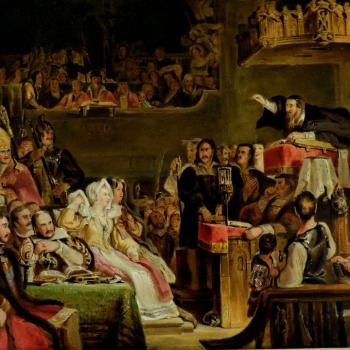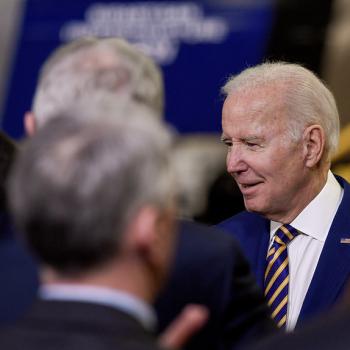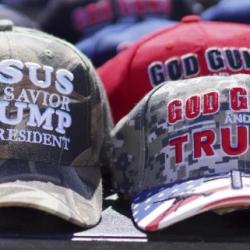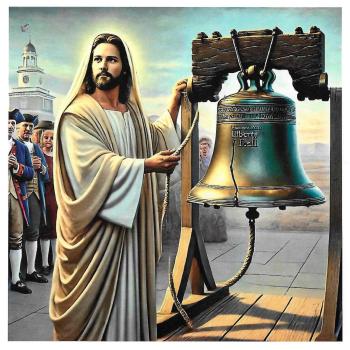Walz and Lutheran Public Theology
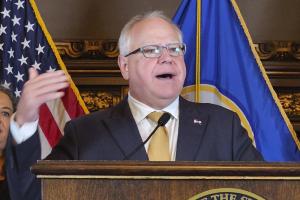
Now that we have a Lutheran lay person running for America’s second highest office, Minnesota Governor Tim Walz, we should pause to ask: will this prompt Lutheran public theology to make a difference? If so, will it make a wholesome difference?
Toward a Global Common Good
Walz’s speeches to date have emphasized serving the common good. I like that. Here’s my working description of public theology oriented toward the common good.
Public theology is conceived in the church, critically sharpened in the academy, and offered to the wider culture for the sake of the common good.
Might a distinctively Lutheran public theology inform, enlarge, and enrich our orientation toward statecraft?
What is distinctive about Lutheran Public Theology?
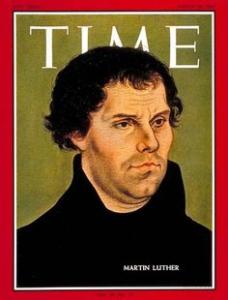
What is distinctive about Lutheran theology? Grace! We are forgiven by grace! We are justified by grace! We are saved by grace! And, in the power of the Holy Spirit, we Lutherans try to live graciously.
Does this emphasis on God’s grace apply to Lutheran Public Theology? Well, here it gets complicated. What is distinctive to Lutheran Public Theology is its reliance on the law-gospel dialectic. More specifically, Lutheran’s look to the law for divine guidance and judgment. Is the law a gift of grace? You betcha! But, again, it’s complicated.
Both Martin Luther and John Calvin recognized that God’s gift of law has multiple uses. At least two uses: a civil or political use and a theological or spiritual use. These reformers ordered them differently. But they agreed in principle on both.
The first use of God’s law
Martin Luther thinks God’s law is written on the human heart. God’s law comes to us via multiple media. Here are some ways.
The 10 Commandments in Exodus 20
Jesus’ summary: love God & love neighbor (Luke 10:27)
Government legislation
The golden rule
An inner sense of fairness
Common sense
Our human problem is not ignorance of the law. Our problem is obeying it cheerfully, gracefully, altruistically.

What Lutherans refer to as the first use of the law is the task of creating and maintaining community. When the law of God is understood in light of this purpose (the purpose of establishing community—that is, the polis or civitas), it is called the “political use” (usus politicus) or “civil use” (usus civilis) of the law.
There are very few people who would overtly disagree with this function of law. A Hindu or agnostic could affirm law just as well as a Christian. Our human intuition tells us that there exists an ideal law, an eternal law, a transcendent moral structure to the universe which existed before we were born and will perdure after we are gone. The Bible’s Ten Commandments or Jesus’ golden rule gain immediate authority with us because our intuition – what is written on our heart — recognizes that we live in a moral universe.
Obviously, some people take the moral universe much more personally and more seriously than others. But even to those who ignore it from day to day it has a ring of truth when they hear about it. Something within the human soul wants to say, “That’s right!” Consequently, when political leaders invite common good legislation in the spirit loving one’s neighbor, it triggers something lurking within our preunderstanding about the rightness or fitness of things. In proclaiming the law of God, then, neither the politician nor the preacher delivers news. They are not telling their listeners about a reality for the first time. Deep within we each know that the purpose of law is to create or sustain world community.
When we citizens miss the mark by failing to live up to the law, then the law stands in judgment against us. Theologically, the law reveals to us our sinful alienation. When the law functions as judge, Lutherans call it the second use of the law. When judged, the person of faith turns to God and neighbor for forgiveness. The person without faith reacts by spewing lies and invectives against a contrived scapegoat to hide what the law has just revealed. Elsewhere I’ve called this self-justification with scapegoating.
The second use of God’s law
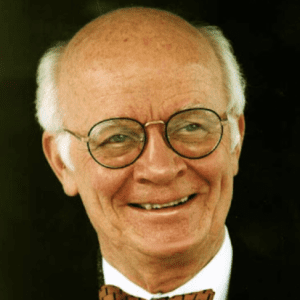
This second or theological use (usus theologicus) of the law is sometimes called the spiritual or pedagogical use (usus spiritualis, usus paedogogicus). Here the law – the same law as in the first use — functions to accuse, judge, and condemn. It reveals our sin. Through preaching, the law seeks us out in our place of hiding, pulls back the camouflage, and exposes us to the full light of God’s justice. Like Adam and Eve covering themselves with fig leaves, no one likes such exposure. So we try to prevent the truth from becoming known.
There is a dialectic between the law in its second use and the gospel of grace. The gospel signals forgiveness. It affirms that our true justness comes from God through the event of Jesus Christ. It is not the product of what we have done. The justness of the innocent Christ—the righteousness of God—is given independently of what we have done or how we have been judged. That which we wish to possess, justness, becomes present not as our achievement but as a gift. In faith the kingdom of heaven with its fulfillment of justice is present to us. We do not possess it. We cannot take credit for it. But it is present. This is the good news of the gospel. The result of the good news is a life of freedom, as Reformation scholar Kirsi Stjerna emphasizes (Stjerna).
We will not ask the executive branch of the U.S. government to proclaim the gospel of forgiveness. But we will ask our pastors and Sunday School teachers to do so.
Toward a Lutheran Public Theology

In our own era, Lutherans are already engaged in public theology, even political theology. University of Chicago sockdolager Martin Marty sponsors through the American Academy of Religion the annual “Martin E. Marty Award for the Public Understanding of Religion.” For our purposes here, however, we want the reverse, namely, a religious understanding of the public. For this we turn to Gettysburg seminary emerita theologian Katie Day. She along with her Fuller Seminary colleague, Sebastian Kim, place the public theologian in the midst of the political fray.
“Public Theology is thus theologically informed public discourse about public issues, addressed to the church, synagogue, mosque, temple or other religious body, as well as the larger public or publics, argued in ways that can be evaluated and judged by publicly available warrants and criteria” (Day 4).
Within the public fray, the Lutheran public theologian tries to steer political sentiment in the direction of the common good.
“The common good needs to be more broadly writ by public theologians who must expand their analysis and dialogue partners” (Day 17).
The Lutheran World Federation adds the prophetic accent to the common good.
“By engaging with issues of common interest, we seek to build the common good and fulfill our calling to be prophetic voices for transformation within our societies.”
“In a nutshell,” writes Lutheran public theologian Paul S. Chung, “public theology (theologia publica) is concerned with the public affairs or institutions of society (res publica) to promote the common good of society” (Chung 11).
Two cautions for Lutheran public theology
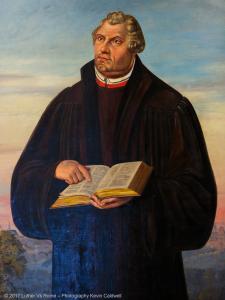
Yes, indeed, the Lutheran politician or civic leader should rely on the first use of the law to guide the world toward an ecologically healthy community centered in the common good. But the titan of Lutheran public theology Robert Benne, issues two cautions.
First, do not expect citizens of the body politic to act out of a sanctified or altruistic spirit. We all remain sinners in the give and take of civil life. The Lutheran view anticipates the worst of human behavior and so needs the law to function as a curb, a guardrail, a protection. The human soul in this life is never fully transformed, never fully altruistic. We remain sinful even as we are justified before God (Benne, Kindle 482). In short, be realistic. Do not get fooled.
Second, distinguish law from gospel. The law offers to bring order to the political or civil domain. Keep in mind that politics, economics, and culture cannot be vehicles of God’s justifying grace. Only the Word of God in Holy Scripture or proclaimed from the pulpit can issue God’s grace, forgiveness, and personal renewal. Avoid the mistake of projecting what happens in the life of an individual’s soul onto the life of wider society. We cannot be gods within history (Benne, Kindle 483-484). Here is Benne’s anthropology that the Lutheran public theologian needs to keep in mind.
“Christians always remain sinners both before God and in their worldly callings. They are simul justus et peccator –– at the same time righteous and sinful. Insofar as the Spirit infuses the love of Christ in their hearts, Christians are righteous. Insofar as the old Adam remains active in their lives, they remain sinners. Unfortunately, the old Adam can only be fully conquered in the last times, not in this worldly life. So Christian life on earth will be a struggle in which the Spirit of Christ and the old Adam are in unending conflict” (Benne, Kindle 716-719).
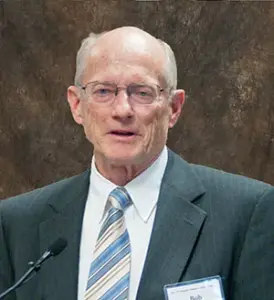
In short, the best our best political and civil leaders can accomplish is a pre-cursor or anticipation – a prolepsis — of God’s eschatological kingdom of justice. No absolutes within history.
Even with this caution, dedication to God’s justice in the form of prolepsis is the way a person of faith lives out that faith in the world.
Defending the ELCA?
Mud-slinging has spilled beyond the political kingdom into the ecclesial kingdom. MAGA Republicans are braking the stained glass windows of the Evangelical Lutheran Church in America by attacking Walz’s membership. Here is Brian Kaylor.
“Despite the mainstreamness of the ELCA, rightwing publications are already blasting the denomination and Walz’s small church in hopes of scaring some voters. The Daily Caller, which was cofounded by Tucker Carlson, attacked the ELCA for affirming LGBTQ+ people, ordaining women as pastors, and rejecting inerrancy. The piece also blasted Walz’s local church for supporting reparations, not using male pronouns to refer to God, and encouraging interfaith dialogue with Muslims. A fundamentalist website called his church ‘a trainwreck of heresy and blasphemy’ for similar reasons. And some conservatives have criticized the denomination and the church on social media. Like Mollie Hemingway, a writer for the conservative publication The Federalist, who claimed to be a confessional Lutheran and dismissed the ELCA as ‘an extremely left-wing sub-denomination’ (which is a bit like me calling the Southern Baptist Convention a ‘sub-denomination’).”
Is it the task of the Lutheran public theologian to rise up in indignation and fling mud balls at the MAGA attackers? No.
Conclusion
To state the obvious: Lutheran public theology in no way supports American Christian Nationalism (Cooper-White). Nor, in the name of religious liberty, would it ask the public to privelege one religion over another. Public theology for the Lutheran takes place outside the church, within the secular civil order.
Might Lutheran public theology yield a wholesome effect on America’s civil order? Yes, in two ways. First, the Lutheran approach enlists the spirit of community working toward a global common good. Second, the Lutheran approach is realistic about possible disappointments when otherwise respected leaders fall short of living up to the law’s expectation.
With this in mind we ask: might candidate Tim Walz avail himself of the insights of Lutheran public theology as he plans his governance strategies?
PT 3251 Walz and Lutheran Public Theology
Dancing the Lutheran Walz
Christian Nationalism Resources
PT 3302 From Ukraine to World War Three in One Misstep
PT 3303 From Ukraine to Armageddon?
PT 3304 Nazi Cursing of, and by, Russia
PT 3305 Moscow: The Worst Public Theology
PT 3306 Moscow Again: The Worst Public Theology
PT 3307 The Art of War in Ukraine
▓
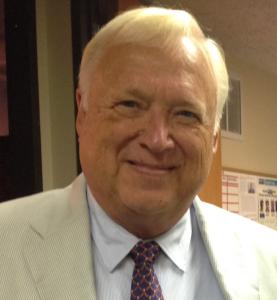
For Patheos, Ted Peters posts articles and notices in the field of Public Theology. He is a pastor in the Evangelical Lutheran Church in America and emeritus professor at Pacific Lutheran Theological Seminary and the Graduate Theological Union. His single volume systematic theology, God—The World’s Future, is now in the 3rd edition. He has also authored God as Trinity plus Sin: Radical Evil in Soul and Society as well as Sin Boldly: Justifying Faith for Fragile and Broken Souls. He recently published. The Voice of Public Theology, with ATF Press. See his website: TedsTimelyTake.com and blog site, https://www.patheos.com/blogs/publictheology/ .
▓
References
Benne, Robert. The Paradoxical Vision: A Public Theology for the Twenty-First Century. Minneapolis MN: Fortress, 1995.
Chung, Paul. Public Theology and Civil Society: Constructive Formation. Madris: EBL, 2022.
Cooper-White, Pamela. The Psychology of Christian Nationalism: Why People Are Drawn In and How to Talk Across the Divide. Minneapolis MN: Fortress Press, 2021.
Day, Katie, and Sebastian Kim,. “Introduction.” Katie Day and Sebastian Kim, eds. A Companion to Public Theology. Leiden and Boston: Brill, 2017. 1-21.
Peters, Ted. The Voice of Public Theology. Adelaide: ATF, 2023.
Stjerna, Kirsi. Lutheran Theology: A Grammar of Faith. London: T. & T. Clark, 2022.





